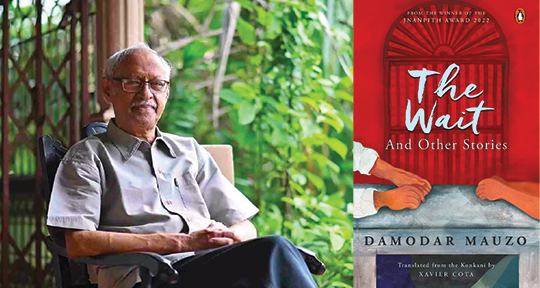The Tokyo-based CŌEM is a multi-talented collective of poets, writers, and coders who explore the ever-evolving and curious intersection between poetry and technology. In creating immersive experiences and rethinking the potential of words, the group work to advance their writerly craft with feats of digital engineering, operating on the idea that poetry is not only a literary form or a vehicle for expression but a way of engaging with the world as it moves and changes. I spoke with two leaders of CŌEM, the award-winning poet Nagae Yūki and co-founder Jordan A. Y. Smith, our conversation touching on the singular life of the poem, how poetry can be enacted in physical and digital landscapes, and what transpires when minds of discreet intelligences converge.
Xiao Yue Shan (XYS): CŌEM brings together digital language and poetic language to create projects that aim to immerse readers further into the world of the poem. For you two as poets, what about virtuality entices you? What is particularly seductive or engaging about a poem existing outside of the page?
Nagae Yūki (NY): This addresses a fundamental question of how to determine the essence of poetry. The poetry on the page in the form of écriture can easily be understood as poetry itself—but spoken poetry, with the tongue and the throat and gestures, is a more primeval form than written poetry, as seen with the Iliad and the Odyssey. In fact, I feel that this physicality is key. Over the last ten years, as social media have reached the peak of their prosperity, the digital has largely been criticized as a medium that strips away human physicality; however, today, the latest technology (including the metaverse, which is a sensory technology) allows people to experience leaps in time and space that are possible only in virtual space.
Returning to the first question, what is poetry? Perhaps a metaphysical gaze that overlooks the branching, irreversible movements of time in simultaneity, a miracle of the tongue that freely draws in different places. Isn’t it the poet who makes such connections visible, translating them into something that can be sensed by others? If so, technology as a poetic medium can be considered to have this same power, allowing many people to approach the written word intuitively. Don’t get me wrong—I truly believe in writing, but at the same time, when poets manipulate digital devices and let their bodies and thoughts pass through the metaphysical touch of technology, I am convinced that new poetic expressions that have never existed before will be born—and re-introduced to the page someday. It is my intuition that within these exchanges lies hidden the actual potential for revolutionary changes in the expression of poetry.
Jordan A. Y. Smith (JAYS): Poetry on the page is a great nexus of experiences, but there’s nothing about the medium of paper except its tactility and scent that merits it being the primary locus of poetic form, and the digital “forms” that mimic paper actually sacrifice what’s good about it, remaining faithful to conventions like line shape and length, print-based traditions, and the simulation of book construction that actually deprive the digital of anything that could potentially justify that very sacrifice. There’s a place for poetry in printed forms such as books—I mean, I also edit Tokyo Poetry Journal—so this is not suggesting a replacement of “pages.”
What can be found “in” the poem through the digital is in many ways more akin to the actual poetic experience, which can be synaesthetic, hyperlinked, virtual, disembodied and re-embodied in new ways, spiritually haunting, uncanny, delusional, multilayered, and so on. I’m generally in favor of doing things with poetry—reading it out loud, writing it in my own handwriting, playfully removing parts to highlight, decontextualize, and emphasize them as units.
This sense of play is embodied in Oulipo writers as well, and when I designed and taught a course in digital literature (at UCLA back in 2014), we spent a fair amount of time looking at antecedents of digital literature. Now we have increasingly more versatile tools, so this is just as natural a change as writers switching from quill and ink to ballpoint or mechanical pencil, and from printing press to print-on-demand or e-books.















